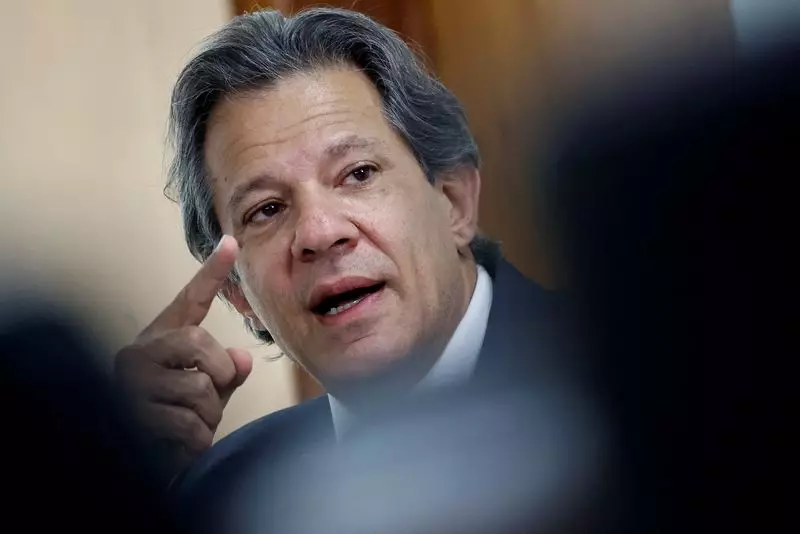In a significant development for Brazil’s financial landscape, Finance Minister Fernando Haddad has abruptly canceled his scheduled trip to Europe. This decision, announced by the Ministry of Finance, comes at a time when market stakeholders are growing increasingly anxious about the government’s commitment to implement promised spending cuts. The cancellation underscores the mounting pressure faced by the Brazilian government to clarify and actualize its fiscal policies and strategies.
The Brazilian real has been exhibiting volatility, particularly evidenced by the U.S. dollar reaching its highest closing rate against the real since May 2020. This climb in the dollar’s value reflects heightened investor concerns and suggests a precarious economic situation that demands urgent attention. The timing of this escalation is crucial, occurring just ahead of the U.S. presidential elections, which typically adds another layer of uncertainty to the global economic framework.
Implications of Staying Domestic
Minister Haddad’s decision to remain in Brasilia rather than pursue international discussions signals a pivot toward addressing pressing domestic issues. The ministry’s brief statement emphasized Haddad’s focus on “domestic subjects,” although specific details were conspicuously absent. This lack of concrete information only intensifies investor anxiety, who have been waiting for definitive fiscal measures in response to ongoing economic challenges.
The government’s earlier assurances that fiscal measures would be unveiled after the recent municipal elections have not materialized, raising questions about the administration’s strategy and commitment to fiscal responsibility. Some local reports, notably from Folha de S. Paulo, indicate that further delays in presenting these critical spending-cut measures are likely. This uncertainty can erode investor confidence further, causing unsettling fluctuations in the currency and potentially hindering economic growth efforts.
The Road Ahead
While Minister Haddad’s travel plans to Europe were set for an initial window between November 4 to 9, the Ministry of Finance has implied that such international engagements may occur at a later, more opportune time. The government must now balance its domestic obligations with the necessity of engaging with international markets, which can prove challenging in times of uncertainty.
Vigilance in policy formulation and communication is crucial in alleviating investor concerns. As Brazil navigates this period of fiscal uncertainty, the priorities will likely dictate a course of action that either reassures or diminishes investor confidence significantly. Stakeholders are left to speculate whether the government can rise to meet these economic challenges while maintaining a transparent and communicative approach regarding fiscal measures that would stabilize the real.
Brazil is at a crossroads, with its fiscal health hanging in the balance. The recent decisions made by Finance Minister Haddad reflect both the urgency of stabilizing the domestic economy and the complexities of addressing investor needs amidst global uncertainties. Moving forward, it is vital for the Brazilian government to articulate a clear fiscal strategy to foster confidence and ensure economic stability.

